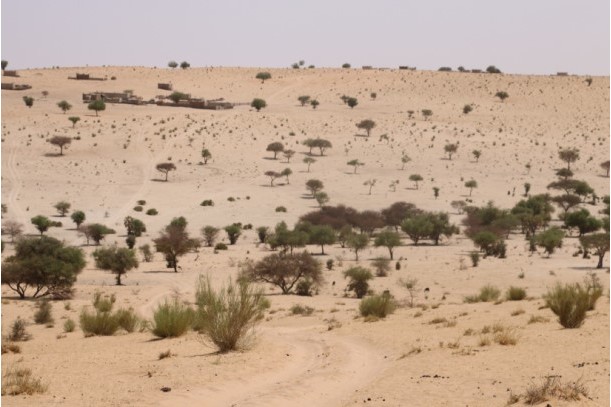Nigeria at risk of becoming a desert – NCF

Summary
DG of the Nigerian Conservation Foundation said Nigeria loses 0.6 kilometres of land annually to desertification.
The Director-General of the Nigerian Conservation Foundation (NCF), Muhtari Aminu-Kano, has called for measures to tackle the high rate of desertification in Nigeria. Speaking at the 2018 edition of the Green Ball series in Lagos on Sunday, Aminu-Kano said the desertification of the entire country was imminent given the country loses about half a kilometre of its land mass to desertification annually.
The theme of this year’s annual charity fundraiser for the NCF was, Green Recovery Nigeria: Restoring Mangroves and Reclaiming the Desert. At the event, which is organised to support the execution of the Foundation’s programmes, Aminu-Kano said that mangroves were also being lost in the Niger Delta and the nation has already lost up to 95 percent of its forest cover.
“Green Recovery Nigeria is our push to bring the agenda that Nigeria is pathetically losing 95 percent of its forest cover and (that) we have only five percent left,” said Aminu-Kano. “350,000 hectares of land are being lost annually to desertification and the land lost is about 0.6 kilometres, which is about half a kilometre every year.”
Acording to a report by the United Nations Convention to Combat Desertification (UNCCD), land degradation due to drought and desertification affects about 1.9 billion hectares of land and 1.5 billion people globally. About 60 million people in Africa face displacement within five years as their land turns into desert. The report said two-thirds of Africa’s fertile land could be lost by 2025 due to growing desertification.
The Environmental Investigation Agency (EIA), a UK-based NGO, said earlier this month that more than four million trees, worth roughly half a billion dollars a year, were cut down in Nigeria from January 2017 to March 2018 in violation of the Convention on International Trade in Endangered Species (CITES). The governing body of CITES has since banned the export of rosewood from Nigeria.
Philip Asiodu, Chairman of the NCF’s Board of Trustees, in his speech, recalled that Nigeria had signed an agreement with the Food and Agriculture Organisation of the United Nations (FAO) to restore 25 percent of its forest cover. He noted that Nigeria has since done nothing, while other African countries have commenced implementation of the agreement.
“There is a lot of work to do to persuade the government into action,” he said.
Founded in 1980 by late Shafi Edu, NCF is the premier non-governmental organisation dedicated to nature conservation and sustainable development in Nigeria. The mission of the foundation includes to promote the sustainable use of natural resources for the benefit of present and future generations, advocate actions that minimise pollution and wasteful utilisation of renewable resources, and preserve the full range of Nigeria’s biodiversity, which includes species, ecosystems and genetic biodiversity.
Related
-
World Bank launches Climate Innovation Centre in Ghana
The technology hub will help over 100 climate entrepreneurs develop and commercialize innovative solutions to climate ...
-
Climate change threatens global food supply – UN report
The report shows that sustainable land management can help reduce the effects of climate change and in some cases reverse ...
-
UK aid reduces 16 million tonnes of greenhouse gases
UK aid-supported climate projects have provided 26 million people with improved access to clean energy in the last eight ...










